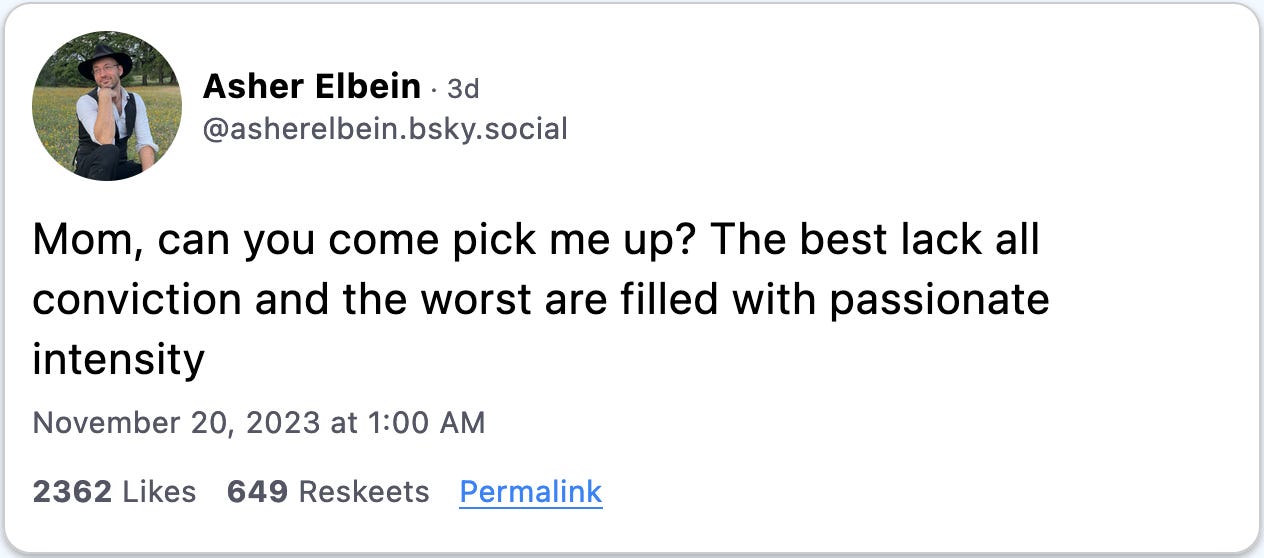Generational Change
An end-of-the-year meditation with old photos
Happy New Year! In my final post of 2023, I look back at how dramatically the world has changed since my parents and my grandparents were born.
As the year comes to a close, I’ve been going through old photographs and family mementos. The passage of time and the advancement of technology is evident in the changing media of the images across the years. In spite of those recent events—the COVID-19 pandemic, the Russian invasion of Ukraine, the October 7 attacks on Israel—that dramatically affected our lives, our day-to-day experience of life changes very little from year to year. But when I look at these old photos the world of my childhood seems almost unrecognizably remote and strange.
We tend to overestimate how much things will change over a year or two, but underestimate how much they’ll change over a decade or a generation. This is a version of an idea attributed to the futurist Roy Amara—sometimes called “Amara’s Law”—about forecasting technological change, but it’s true of change more generally. In any given year, our lives change in relatively small ways that we mostly anticipate. Because we underestimate how long it takes to build and to implement change—and because we get caught up in the hype around new things—these changes happen more slowly than we expect. But over time gradual changes in the way we live accumulate and compound until taken together they’re transformative.
When I was born, in 1970, the average global temperature was 1°C cooler than it is today. There were about 3.7 billion people on Earth, less than half as many as there are now. Life expectancy in the US was about 71 years. Smallpox had not been eradicated; I was part of the last generation that was vaccinated against the disease. The per capita GDP of the US—now close to $70,000—was just $26,000 in today’s dollars, so Americans were much poorer then than they are now. ARPANET, the early ancestor of the internet, was switched on just a year before I was born. Intel had not yet begun to sell microprocessors commercially. Seven of the 10 largest companies in the world today hadn’t been founded. The European Union didn’t exist, but the Soviet Union did. South Africa was racially segregated under the Apartheid system. Richard Nixon was president of the US. In spite of the war in Vietnam—where the US had several hundred thousand troops deployed—Nixon was so popular that he would win the 1972 election with more than 60% of the popular vote.
The world my parents were born into seems even more remote. My father was born at the very end of the Great Depression, six months before Hitler invaded Poland to begin WWII. At the time my father was born there were less than 2.5 billion people on Earth. Life expectancy in the US was about 63 years. There were no commercial airplane flights across the Atlantic. Otto Hahn and Fritz Strassman had observed nuclear fission six months before, but it was still unclear whether it would be possible to make a nuclear weapon. There were no digital electronic computers; the calculating machines that existed at the time used gears and levers. There was no United Nations. India and Pakistan were part of the British Empire; Korea was still part of the Japanese Empire. The modern state of Israel didn’t exist. The Chinese Communist Party wouldn’t win control of China for another ten years. Alaska and Hawaii—where I live now—still weren’t states. Large parts of the US were racially segregated by law. In a number of US states, interracial marriage was illegal.
My mother’s father was born in 1901 at the beginning of the Twentieth Century. The global population at the time was around 1.6 billion people—about one-fifth as many people as there are today. The life expectancy in the US was just 50 years, which is less time than I’ve been alive. The Wright brothers hadn’t yet flown the first airplane. Radioactivity had been discovered only a few years earlier by Henri Becquerel and Marie Curie. Germany was ruled by Kaiser Wilhelm II and Russia by Tsar Nicholas II. The Austro-Hungarian Empire still controlled much of Europe. The US was fighting a war to put down an independence movement in the Philippines after seizing it from Spain in the Spanish-American War. Women in the US weren’t guaranteed the right to vote.
The world we live in is our grandparents’ science fiction. Some things about the way we live today would not have been completely incredible to members of my grandparents’ generation, but the technological, political and social changes of the last 125 years have made our world almost unrecognizable. It would have been virtually impossible at the time to foresee, much less to grasp what it’s like to be alive today. It’s astounding to think that my grandfather was born in a world without airplanes—when cars were still a cutting edge technology—while his grandson has lived to see robots explore Mars. When he was born when women didn’t have the right vote and racial segregation was legal in the US, whereas today—in spite of all manner of continuing discrimination—same-sex marriage is legal. Viewed from another generation further back, our world would probably have seemed almost an alternate reality, closer to fantasy than to science fiction. Now, when we look another generation ahead, we can probably make a few broad predictions—that the global population will peak in the middle of the century as fertility rates fall below replacement level, global temperatures will continue to rise, advances in medicine will further extend our lives, and advances in artificial intelligence will transform how we live those lives—but we can only speculate about what the world will be like further in the future. The world our grandchildren live in is likely to be as different from the world of our childhood as our world is from the one our grandparents were born into.
Thanks for reading Telling the Future in 2023! My New Year’s resolution is to post more regularly and more often. I should have another episode of my podcast, Talking About the Future, coming out early in January. But my ability to devote my time to producing this newsletter this year depends entirely on your support, so if you can please consider buying a paid subscription. Every subscription really does make a difference. And if you enjoyed this post, please share it with others!






